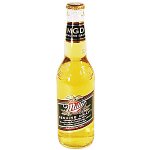Renze
Elite Member
O.k. you're clearly pointing your arrows at me by ripping my remark out of its context, so i'll rephrase: I said that a low ampere rod welder is far more capable than a MIG welder of the same ampere, low ampere MIG welders are only good for light sheetmetal welding: Thin sheetmetal is not the common use on a farm. When not used very often, your Co2/Argon shield gas may leak away, and the welding wire can get rusty, causing it to jam in the welding torch. All reasons why i advised these beginning welders to buy a stick welder, purely from a practical point of view, from personal experience with 200A buzz box, 180A MIG, the 250A mig i use while waiting on my new MIG, and the 450 and 500A industrial units at industrial outfits i have worked in the past.It would appear that some believe if anyone buys and uses anything under a 250a welder then he's nothing but a joke or something.
Yep, thats very safe to say... Just read back and see that i sketched the appropriate operating parameters for several welders i have used...I have very little experience with welders but I'm guessing it's safe to say that any size welder is a useful tool when used within it's intended operating parameters and equally true that each can also be used in an inappropriate and unsafe manner outside of it's intended applications.
Anyone care to enlighten us neophytes what is cheap and what is decent and why? For instance is a 180a 250v lincoln cheap and indecent for it's intended use, what about a 140a 120v Lincoln, is that cheap and indecent for it's designed use, can either be used for "serious" welding or should they be assigned purely for trivial welding?
Is that a serious question ? I am more than willing to share my knowledge about welders with anyone who cares for... Its just hard to estimate the amount and type of work you'll use a welder for once you've bought your first one, and have gotten the hang of welding...
To decide which welder is appropriate for your use, you must know how much amperes you're going to need on average, and the duty cycle of the welder: Hobby welders have a 20 to 35% duty cycle. Which means that my previous 180A welder with 35% duty cycle can only be used at 100% power for 35% of the time: The other 65% of time it has to cool.
In my use it was running on its toes, causing the spool to overheat and short circuit.
The commercial model i bought now, has 350A at 60% duty cycle, and 265A at 100% duty cycle. so it will put out 265 ampere when welding continously without damage.
Another important factor with cheaper welders is: Are the spools copper wire, or aluminum wire ? The copper ones are more expensive but will last. Aluminum spools will corrode (even when not used and just sitting on the shelf) When the aluminum spool wires corrode, the capacity of the welder will decrease, which causes that it overheats even quicker. On my last stick welder, i had to adjust the welder to 180A for 3.2mm rods that normally require 135A because of the aging spools: it was simply not putting out the power anymore. First the thermal protection cut the power after 15 minutes of heavy welding, but in the end, it was getting hot within 3 minutes.
So when buying welders: Amperes means nothing. Check the duty cycle at 100% to know what the welder is REALLY capable of, and buy copper spools so the thing wont deteriorate when just sitting unused under the workbench.
When you wont be using a welder for more than 15 minutes, allmost any welder is good enough if it can bring the amperes to the job. When welding for an hour per time you use it, i'd already start looking at duty cycles of these machines because it can get frustrating. When welding for a full weekdays evening, or a saturday long, you'll throw a fit sooner or later, when your welder is too light and you have to wait every 10 to 15 minutes till it cools down for 20 minutes, when the thermal protection has switched it off.
